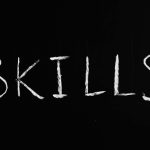Written by Matt Monette, Director of the country, Deel
The world of work undergoes a seismic change. So much so that the skills required by workers should change 70% by 2030largely motivated by technological innovations such as artificial intelligence (AI). While companies take place to follow the pace, the HR teams are subject to increasing pressures to ensure that the labor market has the right skills to take advantage of it.
Although it is positive that British business leaders are seeing the AI potential more and more to improve team performance, only 8% feel that their organizations lead by adoptionsuggesting that there is still room – and a need – of the implementation to accelerate more.
This pressure for faster adoption will no longer exercise pressure on HR teams because they work to understand more platforms and tools, both in terms of the way they use them and how they deploy them to the company's employees.
But it is much more than the deployment of platforms and tools. Business leaders also turn to HR teams to hire with a unique mix of technical skills, and human skills particularly necessary to work alongside AI. This means that the role of the HR professional is evolving. We see HR teams assuming a much more strategic advisory role with regard to the impact that AI has on our work practices and the types of skills a business needs.
It may seem too familiar. So how can HR professionals use AI to their advantage when their work descriptions are starting to change?
Using AI to help obtain the skills that the company needs
The HR teams are loaned much more strongly by companies to find the skills necessary to help the teams to manage, deploy and adopt AI tools within the framework of daily operations. To find this talent quickly and on a competitive market, HR teams will first have to adopt AI tools in order to speed up the recruitment process.
The good news is that there is already a desire for many HR professionals to do so. In fact, access to the latest job technologies – including the tools fueled by AI – is the number one HR professionals say that the process would be easier, with more third parties saying that AI facilitates the search for qualified candidates.
Comfort levels are also high. Recent research in Deel has revealed that 86% of young HR practitioners (aged 25 to 34) think that AI will have a positive impact on their roles by rationalizing administrative tasks and by releasing time for more strategic work.
Speating too much time to manually select applications rather than focusing on what really matters, creating real human connections and developing impactful learning and development programs, it might seem too familiar. If this is the case, this is an excellent example of the place where AI can offer real value. Using AI to analyze applications and support the first stages of the hiring process, HR teams acquire the ability to focus on the most significant parts of their role, feed relationships, start talents and create a stronger culture. It also guarantees greater confidence in hiring decisions, which is particularly critical when recruiting technological skills in demand.
Strengthen talents thanks to continuous L&D
The HR teams are increasing pressure to ensure that existing talents follow each other with the latest skills necessary to work alongside AI. Although the literacy of AI is important, there is also an increasing demand for human skills such as creative thought, leadership and emotional intelligence.
It is essential that the HR teams have time to design and implement tailor -made learning paths that balance the development of human and technical skills. The generative AI can accelerate this by quickly creating personalized training plans and integrating materials, allowing HR professionals to focus on engagement directly with employees, understanding their unique challenges and the supply of support they need.
Some employees could benefit more from external AI training, while others could gain more in the observation of a colleague with practical experience. By automating repetitive tasks, AI releases HR to focus on the development of strategic skills, helping to create a more confident and more capable workforce which is ready to adapt both to AI and future technological innovations.
Investing in training programs that focus on technical skills and general skills is essential to promote a continuous learning culture. This guarantees that employees are well prepared not only to work with AI, but also to adapt to all new technological advances.
Ahead
While AI continues to reshape the world of work, HR professionals will play a central role in the guidance of their organizations through this transformation. Kissing the tools focused on AI, focusing on continuous update and maintaining a balance between automation and human insight in hiring will be essential.
The speed with which organizations adopt AI, or how much they invest in, it is not what decides who are the greatest winners. Instead, it will come back to the best mix of skills to operate AI for them.


